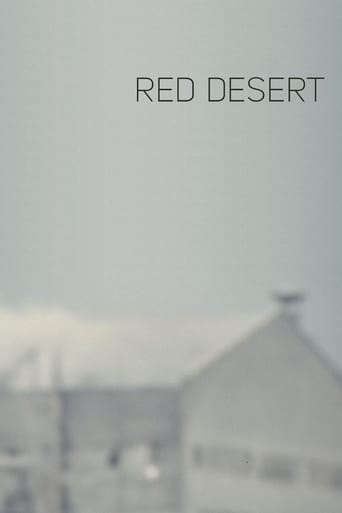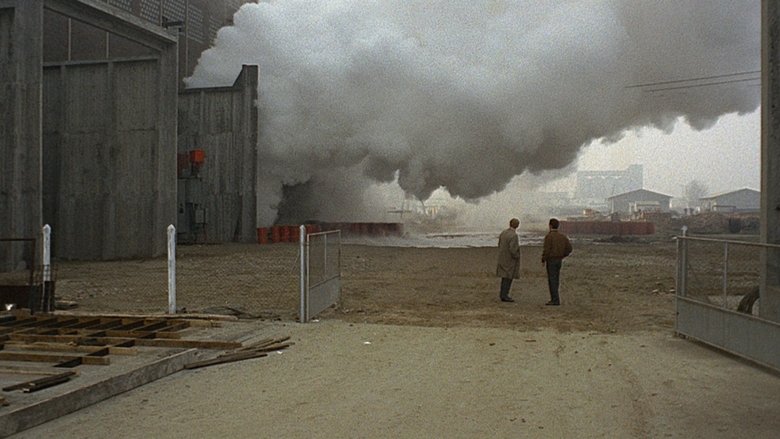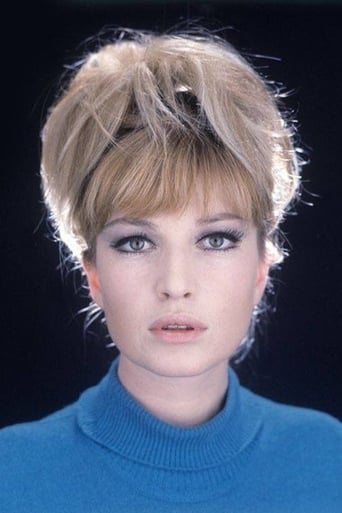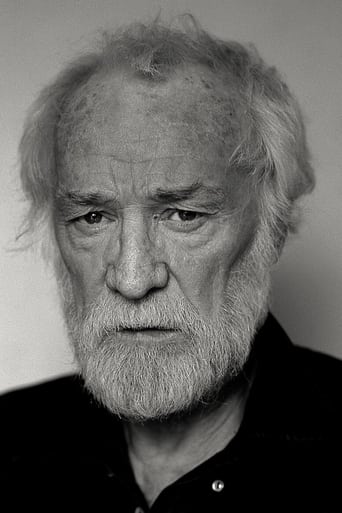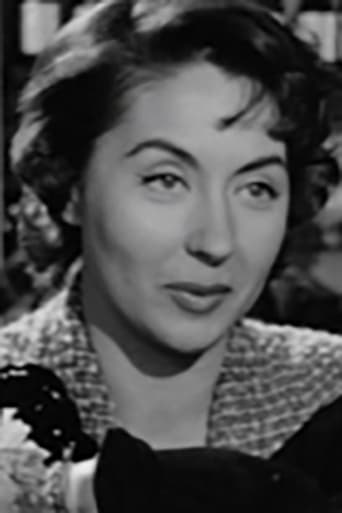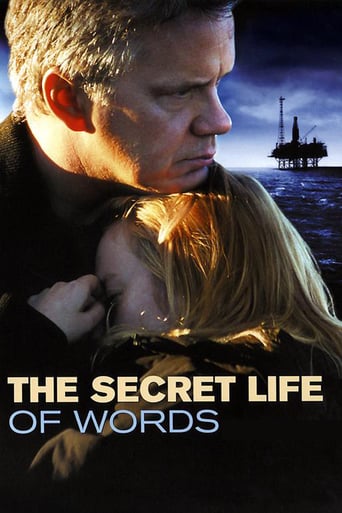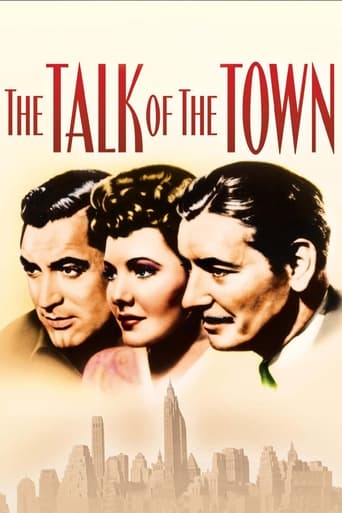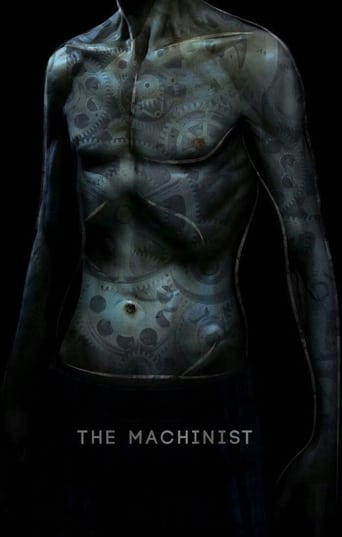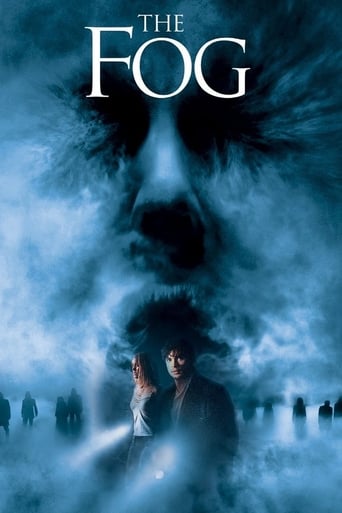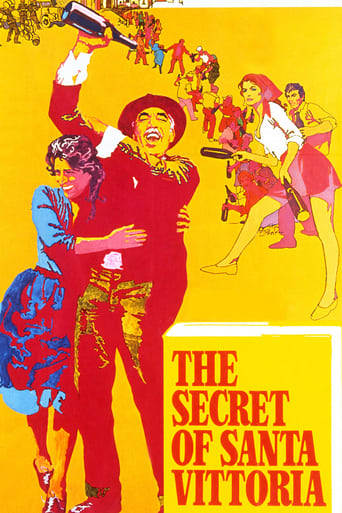Red Desert (1964)
In an industrializing Italian town, a married woman, rendered mentally unstable after a traffic accident, drifts into an affair with a friend of her husband.
Watch Trailer
Cast


Similar titles
Reviews
Absolutely Fantastic
There is, somehow, an interesting story here, as well as some good acting. There are also some good scenes
There are moments in this movie where the great movie it could've been peek out... They're fleeting, here, but they're worth savoring, and they happen often enough to make it worth your while.
The film never slows down or bores, plunging from one harrowing sequence to the next.
From the first time I saw "Red Desert", I discovered it as a portrait of a state. it coult be defined as alienation. but, in essence, it has not name. Giuliana is just a symbol of a deep form of solitude. the film represents only a travel across the rooms of the state, from the industrial places, laughings, family scenes, confessions, meetings, jokes, steps near the other, projects and memories. a film about the area of a large crisis. and not the story becomes significant scene by scene, but the art of Michelangelo Antonioni to translate one of the most gray forms of interior silences. because "Red desert" is a portrait. precise to cruel. for a state. defining our world so complete.
RED DESERT is a drama, which brings a magical combination of different colors in a macabre and alienated environment. This is a simple drama about an estranged woman, who is trying to establish a kind of relationship with her environment. A thematic expression of Mr. Antonioni has not undergone significant changes compared to his previous films.Giuliana is walking with her young son around the petrochemical plant managed by her husband. She is very nervous while passing by the workers on strike, and while listening strange sounds from the plant. Her husband talks with his business associate, Corrado, and mentions his wife, who had a car accident, which has brought a certain mental disorders to her. Ugo is unable to understand her impulsive and nervous behavior. Giuliana and Carrado meet each other and she indirectly reveals details about her mental state. A relationship between two alienated people through a laughter, sexual allusions and brutal truth, can begin...Mr. Antonioni has put his focus on the tempo and a relation between action and reaction by his protagonists. He has presented unhappy lives through a sort of contrast between the color and the scenery. The story is enriched with erotic spices, without a sincere love and connections. Sex is a kind of relief in an anxious condition. Well, that makes sense ... to some extent. Mr. Antonioni has probably thought that people, generally, want to watch distraught lives. This is, unfortunately, true, regardless of the knowledge of described problems.Monica Vitti as Giuliana is a distraught woman, who is confined in her own world from which there is no escape. She sees everything as a potential threat, so that, one sexual affair does not bring any relief to her. Ms. Vitti has offered a very good performance. Richard Harris as Corrado is a successful businessman and a man who constantly wander. However, an anxious wife has wandered into his bed.Their relationship is vague, but they may be able to accept themselves after sex. Each goal is futile, if an exit door is locked.
Antonioni's Red Desert asks us to consider the accommodations and adaptations of the newly successful Italian upper middle class to the changing social, economic and environmental conditions of post-World War II industrialization. More particularly, this important film focuses on the insecurities and honest fears of the middle-aged Giuliana, absorbingly portrayed by Monica Vitti, as she struggles with her own imbalances in the face of a rather sterile marital relationship, shifting social mores and a disturbing and perhaps unhealthy industrial landscape. But the emotionally detached and borderline amoral actions of the supporting players, limited in scope by Antonioni's and Tonino Guerra's script, are also significant to the theme. It is a film that asks how we examine, perceive and choose to act in the world around us each and every day as technology and economic "progress" inexorably make life more complex and disruptive, even as the opportunities for material experiences and goods - for good or ill - increase. Giuliana's mental instability predates the start of the film. A car accident of uncertain causation and her recovery - or lack thereof - in the ensuing hospital stay is unveiled early in the film for context. But Giuliana is clearly not well. She is rightly fearful of the daunting (but geometrically interesting and colorful) industrial structures and the horrifying waste contaminants that are despoiling the land, water and air near the home she shares with industrial manager husband Ugo (Carlo Chionetti) and son Valerio. Ugo, while concerned, appears resolved to maintaining a sort of status quo disequilibrium that he thinks may be manageable. Meanwhile, an industrial entrepreneur, Corrado Zeller (a well-dubbed Richard Harris), acquainted with Ugo, enters the scene, wanting to hire labor for a venture in Patagonia that he is pursuing with half- hearted intensity. He soon begins to shadow Giuliana - and she him - in plain sight during Ugo's workday. These scenes tend to drag a bit as Corrado's undisguised but not physically aggressive pursuit of her reveals a man of surprisingly low self-esteem and an admitted lack of understanding of life. Meanwhile, his interest in her does not assuage her desire for more security and self-awareness in a world she cannot seem to grasp. As their attentions to one another increase - but only slightly, through most of the film - Giuliana's emotional comfort does not progress apace. In fact, the scenes become more dominated by fog and the clouded movement of large, nondescript ships as her connection to a coherent universe continues to slip away. Her confusion is only increased by this strangely kind and attractive figure who, while appearing to empathize with some of her fears, ultimately offers no true solution to her discomfort. In fact, we are left believing that Corrado's actions were more facade than truth, and Antonioni subtly suggests that Giuliana's realization of that fact leads her to a more honest and healthy vision of the odd world she inhabits. One might conclude that she has struggled, and come to an adaptation that might work for her. We are left hopeful.The minor characters in the film, and for purposes of this argument I would include Corrado and Ugo, despite moments of seeming sincerity, are depicted as shallow and accommodative. They are not adapting to the contradictions of modernity, but rather letting their moral principles weaken in the face of the acceptability of money as a standard of righteousness. Antonioni illustrates this through a brilliant scene in a waterfront party shack that is owned by one of Ugo's associates. The flimsy walls are painted in bright colors in this tiny hovel, a metaphor for the shallow excitement and weak moral base that substitutes for honest human companionship in what appears to be a tentatively-engaged bourgeois partner share. Giuliana at least realizes that adaptation to this rapidly changing, increasingly complex and difficultly realized world demands soul-searching and discomforting effort. The others have merely acquiesced to a life devoid of meaning.Antonioni is saying that scientific, technological and most significantly material economic progress, while attractive in some ways - and allegorically represented by the cinematography of Carlo Di Palma, which brilliantly pervades this film - will inexorably present challenges to the human desire to find honest and caring companionship when relationships and a sense of place are fluid., It will push us to come to grips with and ameliorate the destructive aspects of that material progress. A rise in mental instability and addictive or morally suspect behavior may well be a nasty companion to these pressures and challenges. This film, made in 1964, presents a view of modern life that still resonates. View it more than once, and gain more appreciation on each occasion for the power of film to inform our lives.
Some film review books claim Antonioni's best work was all shot in monochrome and thereafter he was less effective, but this movie easily dispels that argument. Colour gives him an extra tool with which to elaborate his familiar themes of alienation and failing relationships. It's the best work I've seen by this darling- director of the art-house set. The use of colour, the eerie locations, the juxtaposition of almost horrific industrial installations belching coloured smoke with deserted ancient Italian streets and the electronic soundtrack (hard to call it a score as such)is disturbing and arresting. The natural world is grey and brown, the man-made elements are primary coloured, invasive and overpowering. Within this landscape, fizzing and gurgling with pollution and decay we find an unhinged engineers wife who's recovering poorly from a car accident and struggling to cope the responsibility of motherhood and being the wife of a man tied up with his career. Some reviewers pour scorn on Monica Vitti's performance in this difficult and complex lead role. Does she over act? Is she hamming it up? I'd prefer to think that she's playing the part of a woman on the edge, torn in different directions at a moment of emotional weakness, without the mental strength to comprehend how odd her behaviour actually is - in short, she's playing it right. Although it must me said her face is unusually immobile in every role she plays so if her body language might be considered over- the-top her facial expression certainly never is. And she has a distinct air of fragility about her. Richard Harris as the 'other man' in her life is an odd choice for the role. Clearly speaking English dialogue but dubbed over by an Italian-speaking actor, and thus lacking the familiar husky lilting tones one expects to hear. He's rather gloomy,but then so is everyone in this film! His character's presence seems only to push Vitti's closer to the abyss, adding another element of unhappiness and uncertainty to her tormented life.It's not, as you've no doubt deduced, a happy film, in any way, but it has a rhythm and style which will keep you watching and unlike Antonioni's previous films there is a certain structure which makes it more more accessible. Perhaps in being set among working people (although far from 'working class') as opposed to the 'idle rich' of films like L'AVENTTURA, gives it more gravitas? Frankly the navel-gazing of poor-me-life-is-such-a-bore characters of those films makes them much harder to care about than fragile frustrated Vitti in RED DESERT. For the immaculate visual style and striking use of colour alone, this film is well worth the effort (and it is sometimes an effort)of watching but the story line and Vitti's character also make it worth listening to. One curiosity - why the clearly intentional scenes shot out-of-focus? Bizarre and entirely pointless as far as I could see, but a minor quibble.

